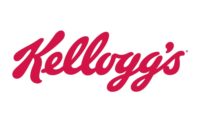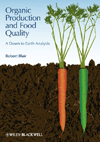Snack Food & Wholesale Bakery was recently able to talk to Amy Senter, chief sustainability officer, Kellogg's, about their sustainability initiatives.
Liz Parker: What does Kellogg’s Better Days commitment entail, and why did the company decide to start this initiative?
Amy Senter: Kellogg is addressing food security and creating Better Days for 3 billion people by the end of 2030. To do so, we’re focused on the interconnected issues of well-being, hunger relief and climate resiliency to drive positive change for people, communities and the planet. Specifically, we are committed to:
- Nourishing 1 billion people by fostering well-being with our foods by delivering nutrients of need and addressing hidden hunger
- Feeding 375 million people in need through food donations and expanded child-feeding programs.
- Nurturing people and our planet by supporting 1 million farmers and workers while conserving natural resources across our value chain by meeting our science-based targets, responsibly sourcing our ingredients, reducing organic waste and providing sustainable packaging.
- Living our founder’s values by engaging 1.5 billion people in the issue of global food security by advocating on behalf of children facing hunger, encouraging employee volunteerism, ensuring an ethical supply chain, and supporting diversity and inclusion.
We embarked on this commitment because we know that today, more than ever, society places broad expectations on corporate citizens. At Kellogg, we believe this is right. Our visionary founder, W.K. Kellogg, instilled in us the understanding that a critical part of running a good business is also doing good for society. That’s why we’ve always worked hard to make sure our company practices deliver benefits to people, our communities and the planet.
LP: What Science Based Targets does Kellogg’s adhere to?
AS: By the end of 2030, our goal is to achieve a 45 percent absolute reduction in Scope 1 and 2 greenhouse gas emissions and a 15 percent reduction in Scope 3 greenhouse gas emissions. By the end of 2050, our goal is to reduce Scope 1 and 2 emissions in our operations (manufacturing, offices, warehouses and fleet) by 65 percent and Scope 3 emissions by 50 percent.
LP: How was Kellogg’s able to exceed its 2020 global goal of reducing scope 1 & 2 greenhouse gas emissions by 15 percent, one year ahead of schedule?
AS: We’ve invested in renewable electricity in some of our major markets, reduced our sales fleet in North America, we have increased efficiency in our manufacturing, and we have moved to fuels with lower carbon intensity.
LP: Any future sustainability initiatives coming up?
AS: We will be sharing exciting progress towards reducing organic food loss and waste and the efficiency of our supply chain in the very near future.
Click here to view an infographic on Kellogg's Global Climate Action plan.










